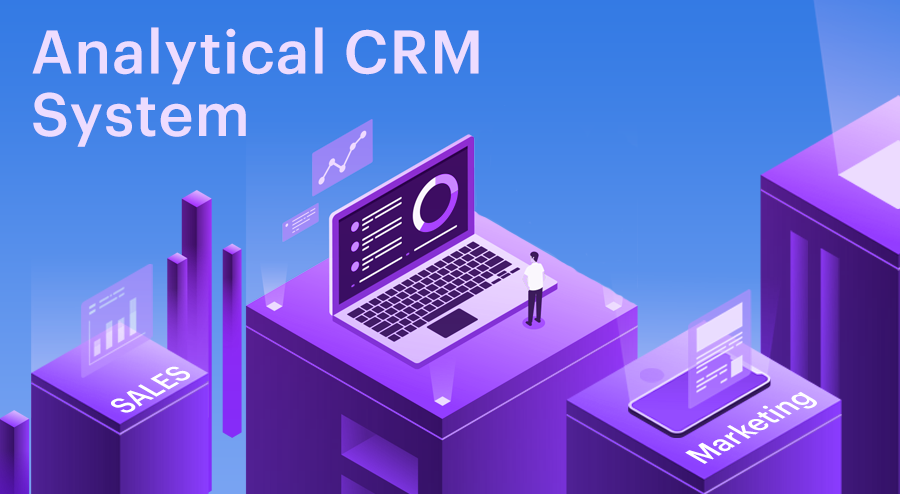Advantages of CRM go beyond just running a business. In today’s competitive business landscape, customer satisfaction and loyalty are top priorities for achieving long-term success. Businesses no longer thrive solely on the quality of products or services; they must deliver meaningful, personalized, and seamless experiences. Providing customer-centric experiences is the key focus for enterprises. That’s why understanding the preferences of your customers and the context in which they engage with organization has become more essential than ever. Moreover, CRM is all about satisfying customers and building long-term relationships. Personalization is a great way to make that happen. It helps you gain insightful information about how, when, why, and where people engage with your brand.
From small startups to large enterprises, CRM has become strategically necessary for businesses seeking to boost productivity and strengthen customer relationships.
This guide outlines all the advantages of CRM (Customer Relationship Management) and elaborates on how it helps businesses maintain customer relationships while boosting sales.
Let's Define CRM
Customer Relationship Management (CRM) is a software solution designed to manage customer interactions for all businesses, large or small. It helps maintain relationships with existing and potential customers, find new ones, and retain old/former ones. CRM keeps all data organized in one place. It tracks how customers engage with your brand and compiles data from various channels—WhatsApp, website, emails, social media, and phone calls into a centralized database. It also helps streamline all operations and drive sales growth. Additionally, CRM automates workflows, processes, and tasks to boost productivity and efficiency.
Main Advantages of CRM
There are numerous benefits of using CRM. Let's see how CRM is becoming more popular and useful than ever:
Enhanced Customer Service
CRM systems offer numerous strategies to improve existing relationships between businesses and clients. One of them is personalizing their experience. It makes it possible to interact with each client individually. CRM systems keep and maintain a record of customer profiles in their database to better understand their specific preferences and needs.
Based on customers’ needs, organizations can adjust their strategies and services to satisfy their clients and foster trust. By doing this, they make customers feel valued and important. Improved responsiveness and understanding among employees lead to enhanced customer service. This reduces the churn rates and helps in retaining old customers.
Additionally, customer feedback will also benefit businesses and motivate them to perform better in the future. A good business strategy involves timely and continuous follow-up with clients on their purchases. It will keep the interaction engaging and allow companies to solve problems before they worsen.
Discovery of New Customers
New customers indicate future growth. CRM is beneficial in recognizing potential customers. By using well-maintained profiles of existing customers, organizations can identify more people to target. However, a growing business should direct its focus more to existing customers. Growth is encouraged only if existing customers are managed properly.
Enhances Upselling & Cross-Selling of Products
Upselling means encouraging customers to buy more expensive or premium products, while cross-selling refers to providing your clients with complementary products related to their previous purchases. The CRM system makes upselling and cross-selling possible within seconds or minutes. It can cross-check available customer data and quickly recommend suitable offers to customers. Apart from this, these two selling forms can provide employees with meaningful insights and help them better understand their customers’ needs. With time, they might be able to predict relevant future customer purchases.
More Productive Sales Team
One of the most crucial advantages of CRM is that it will help your sales team to gain important insights, close deals, and remain organized. CRM provides a comprehensive and centralized platform to store all customer data, from initial contact to throughout the whole process. This enables the sales team to better understand customers, track conversations, and manage data more effectively.
When all customer details — their phone numbers, call logs, emails, and purchase history are easily accessible, quickly identifying and prioritizing leads becomes possible. This results in increased conversion rates and business growth. This information can also generate new leads, predict future sales, and adjust targets accordingly.
Actionable Insights and Data Dashboards
CRM systems can manage and organize your customer data. It can draw comparisons between existing data patterns and past behaviors to extract information. This information is then displayed on the dashboard to provide insights and recommendations. This allows you to create a customized dashboard for each customer to access data that is important for them easily.
Integrated CRM system analytics can provide you with more in-depth information, such as what made them click on your website, which products they explored, how often they contacted your sales team, and the reasons for contacting customer support, etc. Actionable insights and data make staying in touch with interested customers easy. It also allows you to communicate with clients more effectively and readily.
Increased Productivity With AI
The integration of Customer Relationship Management (CRM) with artificial intelligence (AI) greatly boosts productivity. AI-powered CRM tools can analyze a huge amount of data to extract meaningful information and identify changing patterns. It automates complex tasks and frees human staff for more creative work.
By employing features like machine learning, deep learning, and predictive analysis, AI can identify leads and predict the likelihood of their conversion based on analyzed data and past interactions. Furthermore, AI chatbots and virtual assistants handle all customer-related inquiries such as giving immediate answers to questions, minimizing the need for human input. This improves response time and operational efficiency.
Streamline Business Operations
By organizing customer data and automating key processes, CRM solutions greatly streamline all business operations. They gather information from multiple departments such as marketing, sales, and customer service in one place. This ensures easy access to all up-to-date data for organizational employees. This allows for smooth collaboration, reduced communication gaps, and improved internal coordination.
CRM automates workflows such as task assignments, tracking leads, and follow-up reminders that save time and reduce human error possibilities. This enables staff to shift their focus to more important activities.
Additionally, by ensuring regular consistent interactions, CRM enhances customer experiences to a great extent. By streamlining these operations, a CRM solution not only improves working efficiency but allows businesses to build stronger and more loyal customer relationships. This results in revenue and sales growth.
Strengthen Data Privacy & Compliance
Just providing services or products is not enough to foster trust. It is earned by how you manage and secure data.
With the growing concerns around data privacy, B2B organizations must ensure that their customers' data is safe and protected from all kinds of cyberattacks and cyberthreats. Regulations like the General Data Protection Regulations (GDPR) require companies to show they can handle all personal information carefully while ensuring transparency and security.
A modern CRM can help with data privacy issues. It helps you to embed data compliance into your regular operations. This minimizes legal risks and improves customer trust. More importantly, it encourages customers to do business with your organization. CRM ensures data protection in the following ways:
- Records customer consent for data usage.
- Managing the method of contact across all regions and platforms.
- Enabling necessary bulk updates and deletions if needed.
- Maintains records of all interactions, audits, and permissions.
Integration With Other Business Tools
Businesses may use many different apps to run their business smoothly. One of the big advantages of CRM is its ability to integrate with other business tools such as ERP, supply chain, accounting software, and many more. It allows you to work across all apps effectively. This integration of CRM with other tools will eliminate data silos and elevate the overall efficiency of business.
Conclusion
CRM solutions are becoming more popular in the business industry. CRM has many advantages that benefit not only enterprises but also common people. CRM has been widely used by businesses of all sizes to improve customer relationships, automate complex tasks, streamline operations, increase sales growth, lead tracking, and ensure data privacy. It empowers businesses to stay competitive and updated with marketing trends. It empowers businesses to stay competitive and updated with marketing trends. CRM systems are flexible and scalable; they can adapt to your specific needs and business requirements.
However, not all CRM solutions are the same. Customer relationships are the foundation of any business. Therefore, choosing the right CRM solution is an important decision that can positively impact your business and customer interactions.








